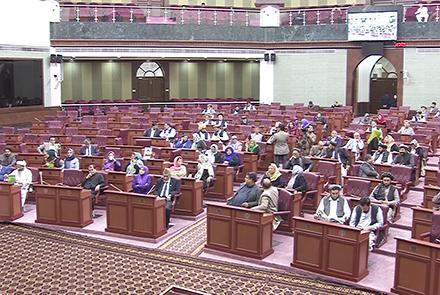The speaker of the Wolesi Jirga (Lower House of Parliament) Abdul Rauf Ibrahimi on Monday acknowledged that corruption does exist in the legislative body, but that a parliamentary commission has been tasked to investigate the allegations.
He called on lawmakers not to debate the issue inside the house as it was of no interest to the country.
“Enough discussions have been held on corruption inside the house over the past few days, but this debate did not send out a good image of parliament; it also created huge problems on social media,” said Ibrahimi.
But, when an MP, Ramazan Bashardost, tried to discuss the allegations of corruption against the speaker himself and the head of the administration board, he was prevented from raising the issue.
Bashardost said the scale of corruption in parliament was sky rocketing.
“I want to categorically say that when something is infected with corruption, they wash it with water, but the dangerous issue is that what can we do when the water itself is infected,” said Bashardost.
But, MP Abdul Qader Zazai Watandost, who serves as the head of parliament’s administrative board, said that raising the issue of corruption during parliamentary sessions was not beneficial for the country.
“Based on parliament’s internal agenda, this is against the national interests and I am compelled to cut your (Bashardost’s) microphone on the basis of the internal rules and principles; you always talk against the national interests,” said Watandost.
MPs however disagreed and said preventing such discussions was against the law.
A recent TOLOnews investigation found that parliament’s speaker and parliament’s head secretariat allegedly embezzled millions of AFs.
But Ibrahimi rejected allegations of corruption, and said he has never done anything that could tarnish the image of parliament.
But at the request of lawmakers, four parliamentary commissions were assigned to investigate the allegations.


